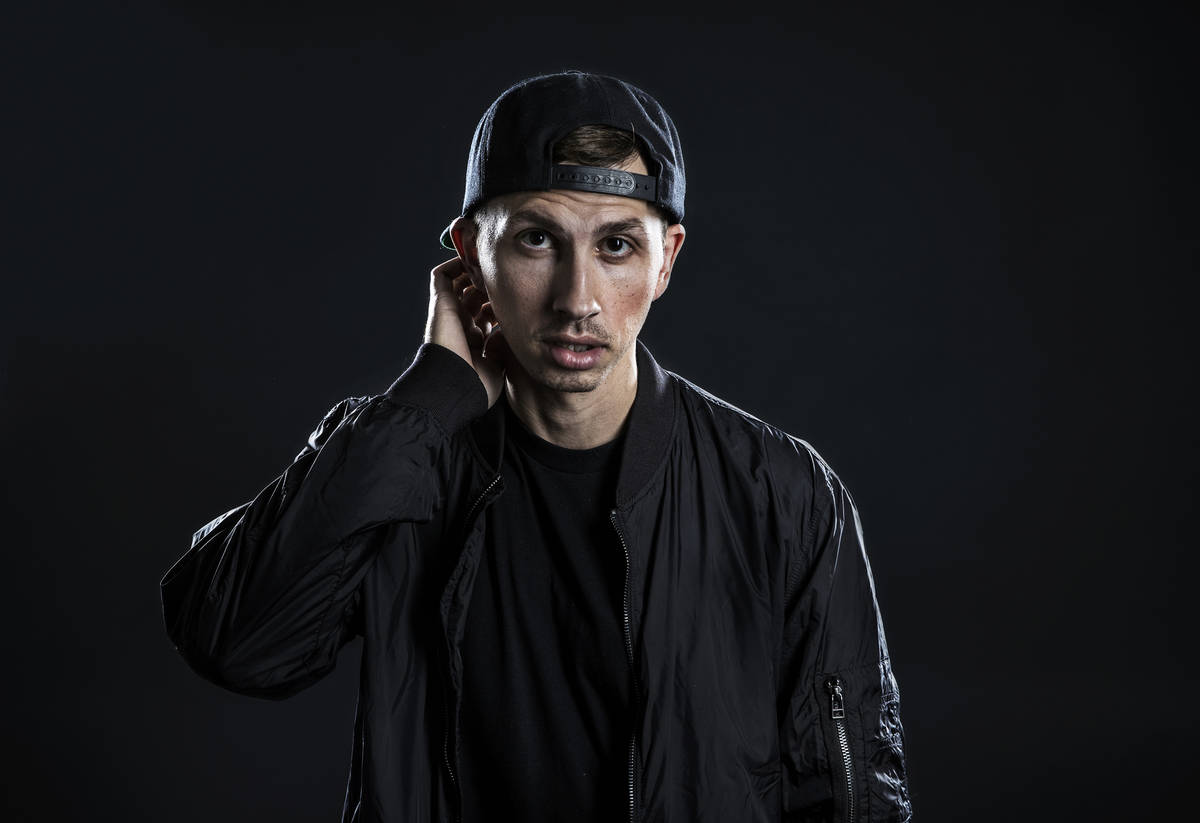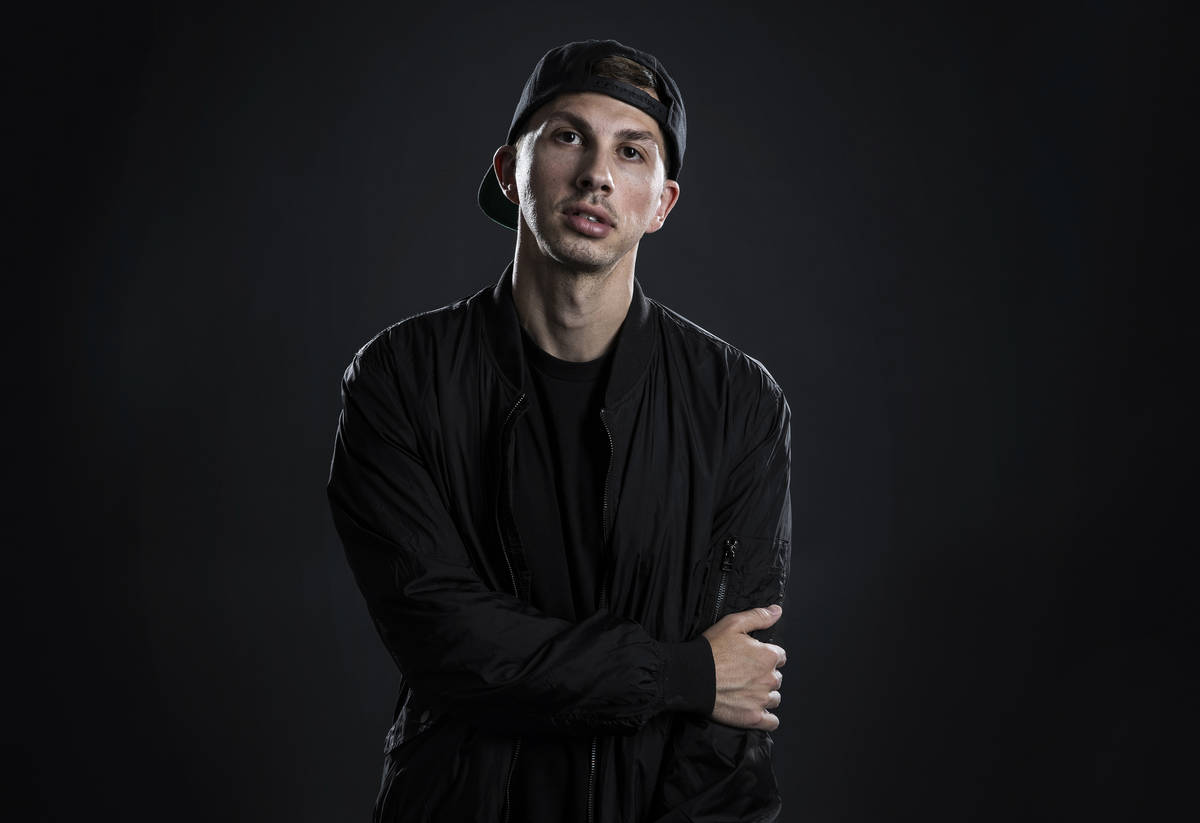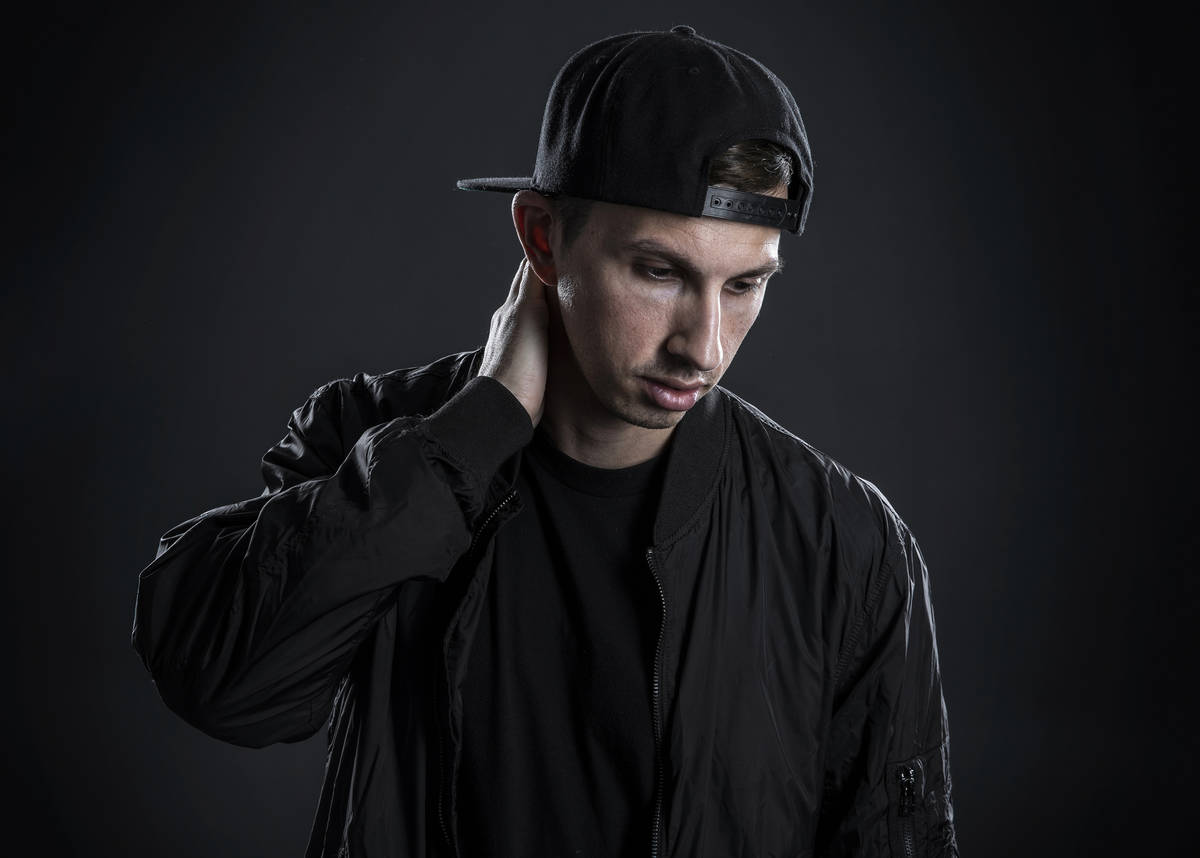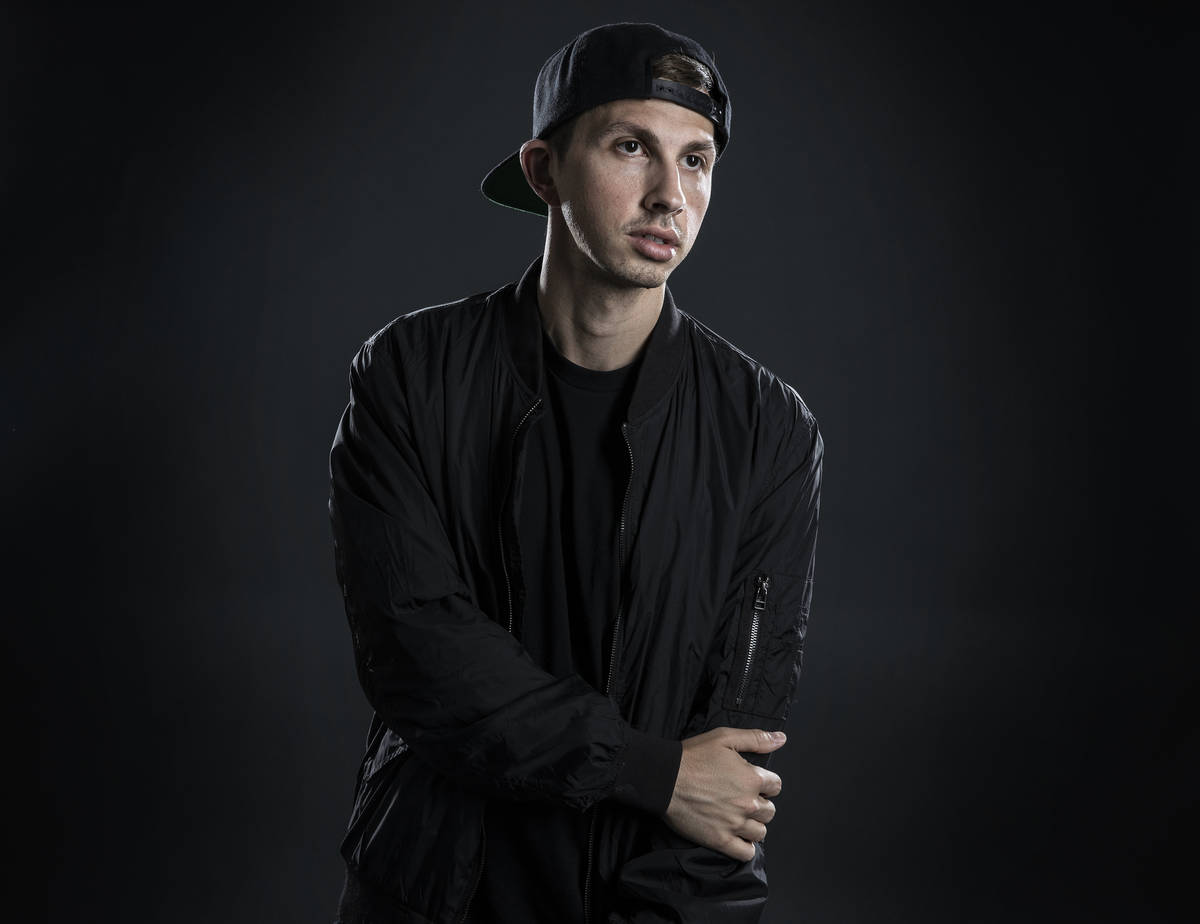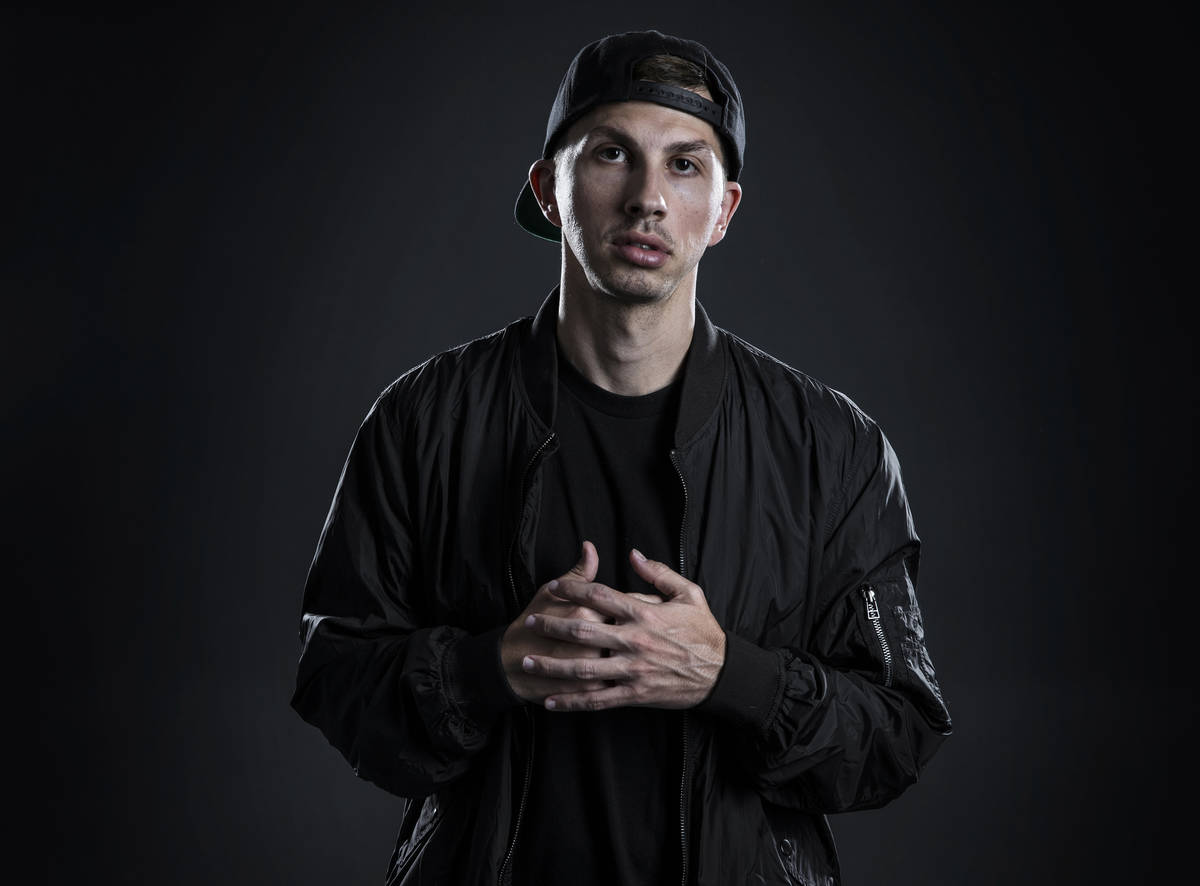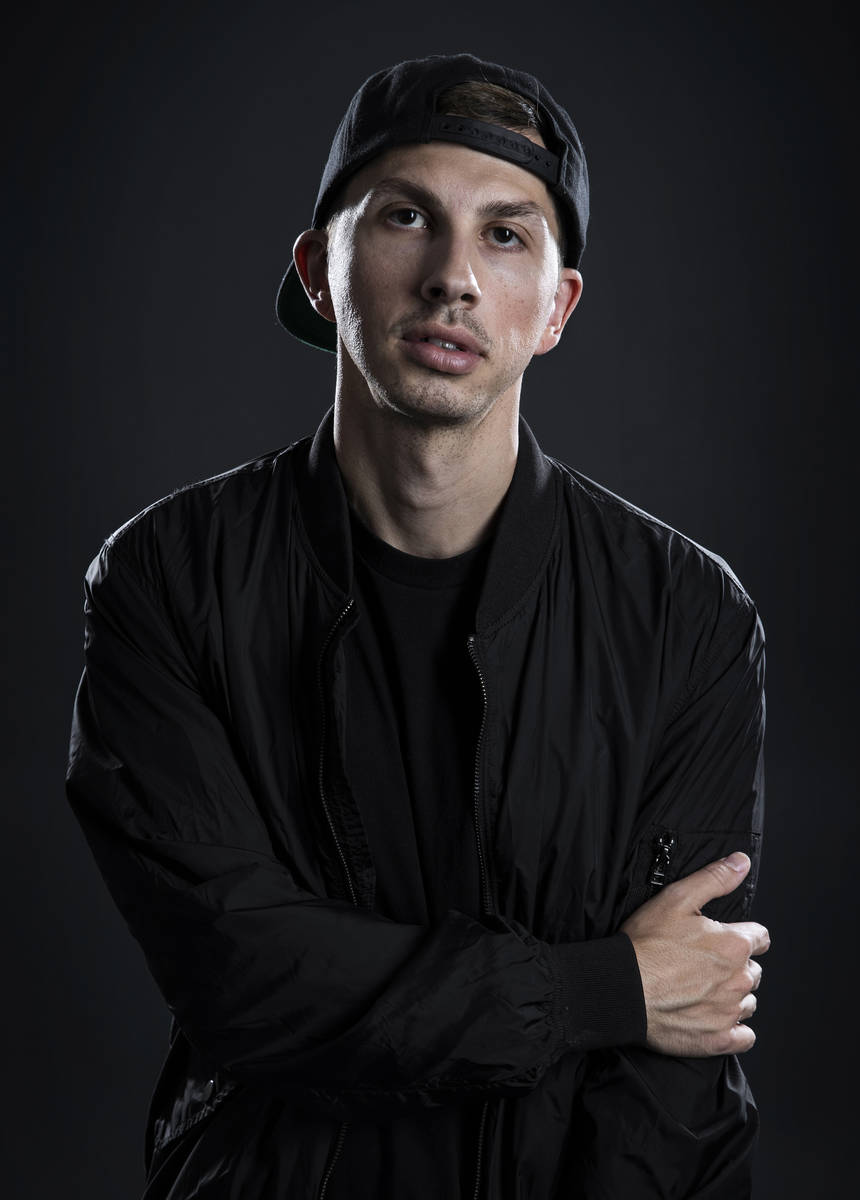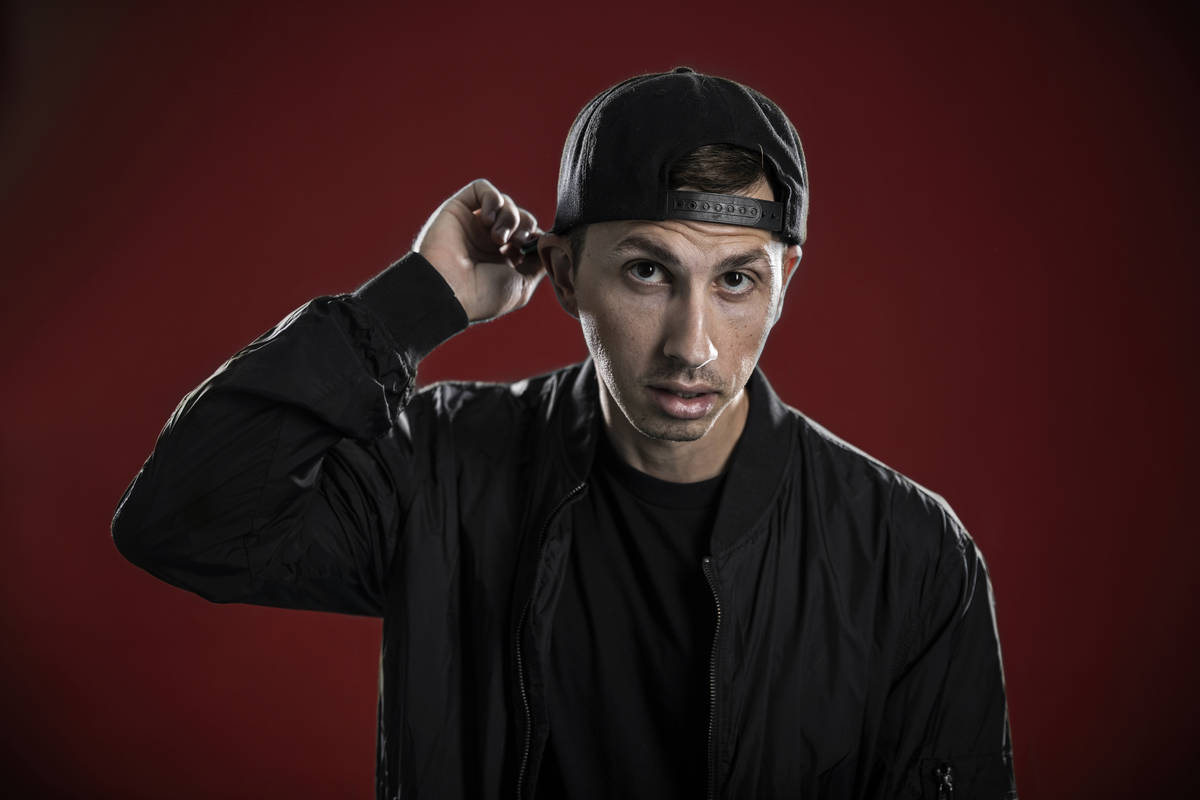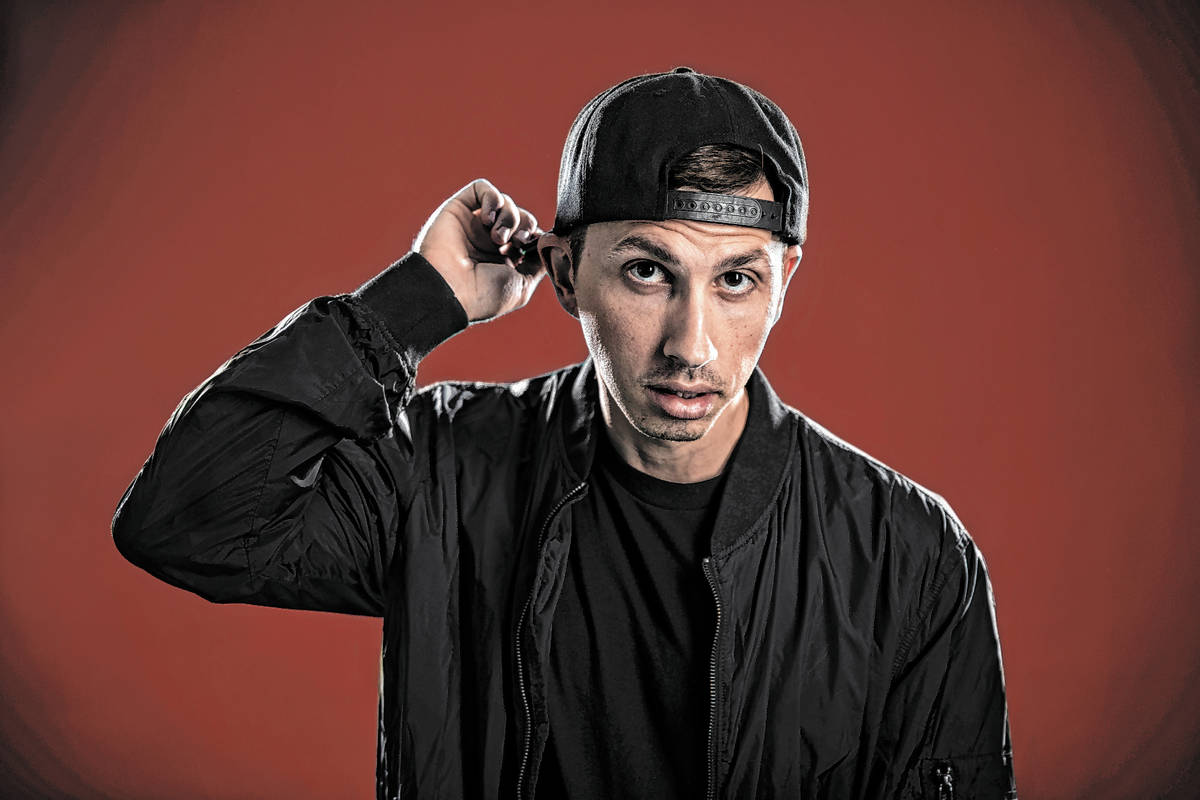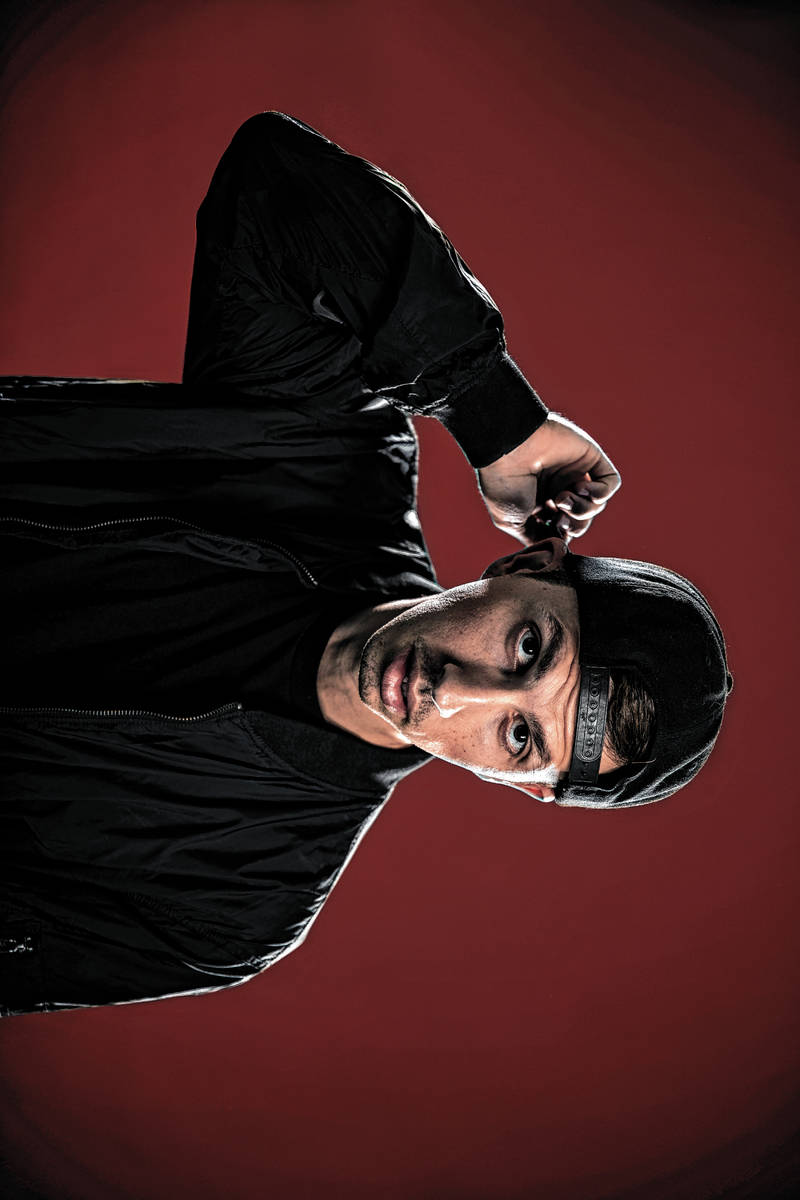Las Vegas indie rapper joins Eminem, late Juice Wrld at top of charts
The names are as outsize as their seven- and eight-figure record deals.
Eminem.
The late Juice Wrld.
Gucci Mane.
Nestled among them all in the top 10 of the iTunes hip-hop chart earlier this summer?
Las Vegas indie artist Ekoh, a self-made man among industry giants.
Though that big-name trio and Ekoh all notched those lofty sales numbers during the second week of July, they took wholly different routes to the same enviable destination: While the former all have major-label backing and the well-monied marketing muscle that comes with it, Ekoh (pronounced “Echo”) did it all on his own as an unsigned artist, making and financing everything himself, right down to shipping every copy of his latest album, “The De2our,” by hand.
It’s a truly remarkable feat that doubles as a sign of changing times in the music business.
“The good thing about where the industry is now is that — although it’s definitely difficult — there’s opportunities for independent artists that didn’t exist before,” says Ekoh (Jeff Thompson). “If you can kind of figure out the marketing side, if you can figure out your audience, if you can figure out yourself, really — your own sound and what you want to say — once you can find that, with things like Spotify and social media, it’s changed the game for everybody in a big way. Especially for people like me.”
A decade in the making
He had three different day jobs back then.
It was March 2013 when Thompson sat down for his first interview with the RJ, stopping to chat about his debut EP, “Zyzzyx Road,” outside a west valley Starbucks during the hour or so of downtime he had between gigs.
Five years later, we’d meet again at another Starbucks, this time to commemorate his tongue-twisting single “Freeverse3” racking up over a million streams on Spotify, again a significant achievement for an unsigned act.
Finally, Thompson was able to quit those day jobs and focus on being a full-time musician.
How things have grown ever since.
Now, Thompson boasts over 405,000 monthly listeners on the aforementioned streaming service — up from 100,00 when we last spoke — where his three most popular tunes have streamed over 12 million times.
Thompson’s path to this point is as circuitous as it is unlikely.
A former skateboarder who got into punk rock before rap, Thompson struggled with addiction issues as a teenager. It was during a stint in rehab that he began writing in a diary, putting his feelings into words, which eventually led to him attempting to do the same over a beat.
Yes, the self-avowed comic book geek pens rhymes about superheroes and “Star Wars,” but he also writes songs that openly address mental health issues, suicide and drug abuse.
“Heart-hop” is what Thompson calls it all, which is his term for artistic authenticity.
“It’s always been what’s felt right to me; it’s what’s always come naturally,” Thompson, 31, says of the candid nature of a good portion of his material. “I grew up listening to a lot of artists that did that: Tupac, Atmosphere, Eminem. All those artists were extremely open, very emotional.”
To underscore his point, Thompson recalls hearing Tupac’s “Thugz Mansion,” a song about taking one’s life, for the first time back in the day.
“I was like, ‘I didn’t know people talked about this kind of (stuff),’ ” he says. “Tupac was talking about suicide, and he does it in such a way that I don’t think a lot of people notice it. To me, that was always what was most important. I didn’t get into rap because I needed to have the craziest bars. I got into it because of the way those songs made me feel.”
‘I’m not a rapper. I’m more a business.’
So announces Thompson over a staccato beat and trilling piano line on “Lost Boys,” a song of comeuppance against the music industry and doubters alike.
The track comes eight cuts into “The De2our,” a 20-song opus in a singles age, registering as Thompson’s most diverse, complete and ambitious release yet.
The rapper revels in his range, from the lyrical dexterity of “Got Me Wrong,” where Thompson’s rhymes came at you so fast it was as if they were fired from a cannon, to bear-hugging nerd-dom on “Mandalorian” to moodier fare like “Sing About You,” which is about excising toxic individuals from your life.
“I think the only reason I’m able to make a song about Marvel superheroes or ‘Star Wars’ and then also make a song about sexual assault or suicide or drug addiction is because it’s all genuine — it’s all things I’m passionate about and want to talk about,” Thompson explains. “I don’t ever do something because somebody thinks I should do it or because it’s popular. I only do things because I think it’s fun, I think it’s cool or I think it’s something that needs to be said.”
When “The De2our” peaked at No. 8 on the aforementioned iTunes chart upon its July 10 release, it marked both a commercial and an artistic high-water mark for the ascendant rapper who works away six days a week making music, videos and constantly updating his various social media platforms, which are crucial to his career, having amassed over 80,000 followers on Instagram and more than 100,000 on Facebook.
Social media has enabled Thompson to cultivate a direct, dedicated connection to his fans, whom he credits for the success of “The De2our.”
“To me it’s more of a testament of what the fans are doing than what I’m doing, because I’ve been doing the same thing for 10 years: I make the songs, I put them out,” he says. “What’s changed is what they’re doing. There’s a community of pretty dedicated fans that I’ve built up, people who have become just incredible supporters, and I see them go to work when an album release gets started. When I see them pushing stuff, how the response just gets more and more, it’s crazy.”
Bright future, dark themes
There’s a desperation in his voice, as audible as the words pouring from his mouth and heart.
“I’m writing songs in hopes to find myself in all these words,” Thompson explains on “Slow Down.” “And maybe make a little money in the process, sure. But first tell me what the (expletive) is happiness, because I’ve been looking back and trying to see when I was happiest.”
The track comes near the end “The De2our,” a reminder that Thompson’s rising profile is no panacea for the real-life issues he still contends with.
“That song was the epitome of that feeling that no amount of likes or views or plays is going to make me feel better,” Thompson says. “I worked all this time to get to a certain point, and then once you get there, it’s like, ‘This is really what I wanted? Am I ever going to actually be happy? Because this doesn’t make me happy.’
“I mean it does,” he continues. “But on a day-to-day basis, am I happy? Sometimes. I think sometimes I confuse not being sad with being happy.”
What’s more, success begets its own challenges: The bigger Thompson gets, the more work there is to do.
“It’s been a big learning curve of learning to work for myself and trying to find a work-life balance, trying to navigate a career that’s a complete moving target every single day — all the new social medias, the merchandise and all that kind of stuff just starts to become overwhelming,” Thompson acknowledges. “The amount of times I’ve said, ‘I didn’t get into this to run a clothing business,’ but I kind of do now. ‘I didn’t get into this to learn how to do artwork,’ but I kind of do now. It’s just been a constant hitting of the wall and then trying to work through it and figure it out.”
Thompson’s hardly complaining, though.
He doesn’t have time to.
“I’ve had people throughout my life telling me I should be setting goals of x, y or z, but I’m just a grinder,” he says. “I just kind of put my head down and work. I look up and go, ‘Holy (expletive), how did we get here?’ ” he chuckles. “And then after that, I just kind of put my head back down and go back to work.”
Contact Jason Bracelin at jbracelin@reviewjournal.com or 702-383-0476. Follow @JasonBracelin on Twitter.



